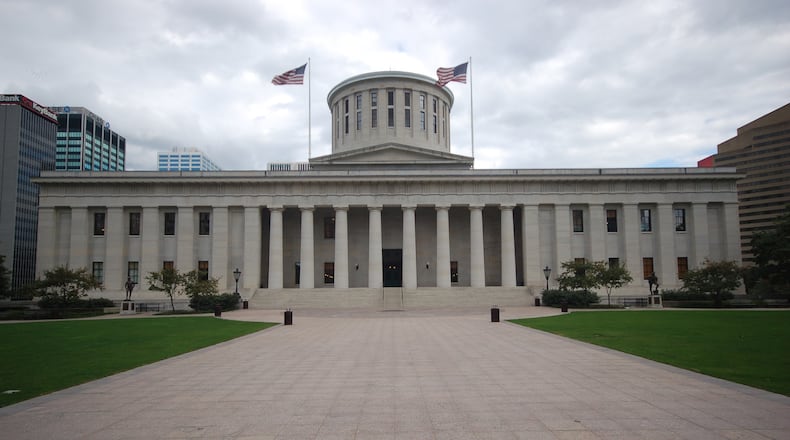State Rep. Andrea White, R-Kettering, introduced HB 427 to the Senate Judiciary Committee. It specifies that giving someone drugs, or using someone’s addiction to drugs, to overcome their resistance qualifies as “compelling” them into prostitution or human trafficking.
That will make it easier for prosecutors to prove someone was manipulated, White told the committee. The omission of “compelling” through drug use is a loophole in Ohio law, she said.
“When drugs are used to coerce or control or compel victims, the physical and verbal violence isn’t always necessary,” White said.
She and state Rep. Susan Manchester, R-Waynesfield, introduced the bill in September. It passed the House in February.
About 70% of trafficking victims say they have substance abuse problems, and traffickers often get their victims hooked in order to exploit them, White said.
She said traffickers know police are less likely to believe someone has been trafficked if the victim is under the influence of drugs.
White said the change in legal language could affect hundreds of people each year. Ohio generates the sixth-most calls of any state to the national human trafficking hotline, she said.
Tax amnesty
A statewide amnesty for 19 types of taxes and fees, the first since 2018, is moving through the General Assembly with no apparent opposition.
Introduced in February 2021 by state Reps. Thomas West, D-Canton, and Bill Roemer, R-Richfield. A substitute version passed the House unanimously in December, and the bill had its third hearing in the Senate Ways & Means Committee on Tuesday. The third hearing, usually the place for opponents to speak, drew no testimony.
“We know this concept has worked in the past — in fact, Ohio has conducted four amnesty programs since 2000, with success,” West told the committee in February, at the bill’s first Senate hearing. “According to a Department of Taxation report on the most recent program, the state collected $14.3 million in unpaid taxes, and prior to that, the 2012 program collected $30.5 million.”
If approved, the tax amnesty would run from July 1 to Aug. 31. It would apply only to taxes due as of the bill’s effective date, waiving any interest or penalties so long as the original amount is paid during the amnesty.
Tax delinquencies for which an assessment or audit has been issued wouldn’t qualify, Roemer testified.
“In addition to receiving a waiver of penalties and accrued interest, a person who pays the amount due is immune from criminal prosecution or any civil action with respect to the tax or fee paid, and no assessment may be issued against the person for that tax or fee,” says an analysis by the state Legislative Service Commission.
Included in the amnesty would be local sales and use taxes levied by counties and transit authorities. Other local taxes, such as school district taxes, would not qualify.
Amnesties in 2002, 2006 and 2012 collected a total of nearly $160 million, but the most recent tax amnesty — in 2018 — brought in $14.3 million, according to the LSC analysis. A renewed amnesty would likely collect at least $10 million, the analysis says.
The bill includes a $250,000 appropriation to pay for administration and advertisement.
The taxes and fees covered by the proposed new amnesty include:
· Income tax
· Commercial activity tax
· State sales and use taxes
· Financial institutions tax
· County sales and use taxes
· Transit authority sales and use taxes
· Public utility excise taxes
· Kilowatt-hour tax
· MCF (natural gas) excise tax
· Alcoholic beverage taxes
· Cigarette/tobacco/vaping excise taxes
· Motor fuel excise tax
· Fuel use tax
· Petroleum activity tax
· Casino wagering tax
· Severance taxes
· Wireless 911 charges
· Tire fees
· Horse racing taxes
About the Author

